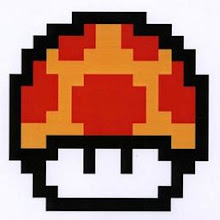today was more or less the start of the academic year for me.
lang arts was cool. mr chew is pretty funky. and lang arts was pretty damn interesting today.
some things to ponder upon:
1. why is science so successful? is it because it jus is so successful?
essentially yea. science is successful and so widely accepted/embraced very much because of how much it has contribtued to mankind. science has given us so much, so much so dat alot of it we take for granted. because it has achieved to much for mankind, we hence all take it dat science is thus a success.
2. generalisations. true or false? jus because the sun rises everyday, does it mean it will rise tom? can we assume something based on general behaviour?
i thot this was a pretyt interesting point dat was brought up in class. it deals largely with the human mindset. we are so accustomed to certain things, we don actually realise its there. the process dat is. like the sun rising. will the sun rise tom? can anyone say? theoretically it will, but practically will it? i think this is one of the major problems faced in science and the scientific method. we assume many things to be true. and hence from there we draw our conclusion. yet we never do consider the fact dta, maybe, factors might change.
-> from here i came out with this qn: is the truth really the truth? how do we define the truth? by theory? observation?
so, lemme try to answer this qn. the truth, in my belief, is but how we view a certain situation/phenomena etc. it is but wad we choose to believe. so is it really the truth? its hard to say. maybe, mayeb not. we define the truth, through many different methods. philosophy, science, religion etc. but how den do we "know" the truth? is it by observing a particular pattern, and hence deducing that to be the truth? much like aristotle observed dat heavier objects fell faster, hence deduced that to be thee truth. wad it the truth? at that time, yes! people believed. in that, hence that was, to them, the truth. but as we now know, they were all wrong. hence wad can we deduce? that truth, as we define it, is not fixed. it is ever changing. our understanding of a particular object/situation cannot be fixed. it has to evolve with what is considered true.
3. science vs religion.
which is more important?
its hard to say which is more important. they are both impt in their own rights. different means to understand similar things. different truths to the same phenomena. imo, science is an outward understanding, whereas religion is an inward understanding.
science does what religion cannot, which is to put figures and statistics to phenomena. science tells us more about the world around us. science lets us explore the world around us. it gives us an idea of what things are made up of. simply put, science gives us answers.
but religion gives us answers too. answers of a different sort. answers about the self. religion lets us explore the world inside of us. an inward, possibly egocentric, realisation of the self. its does not tell us wad things are made up of. instead, its attempts to tell us why things are what they are. religion puts down phenomena to the doing of a greater being.
it is often argued that religion allows for a more emotional understanding of the self. why you're here, instead of how come you're here. in religion, everything has a purpose. in science, theories are carved out of essentialy, ideas. brainwaves. sometimes totally random things.
but all in all, science and religion share one common purpose. they are both man-created ways of understanding, of trying to understand and make meaning, and finally to discover the truth.
Monday, January 16, 2006
Subscribe to:
Post Comments (Atom)


No comments:
Post a Comment